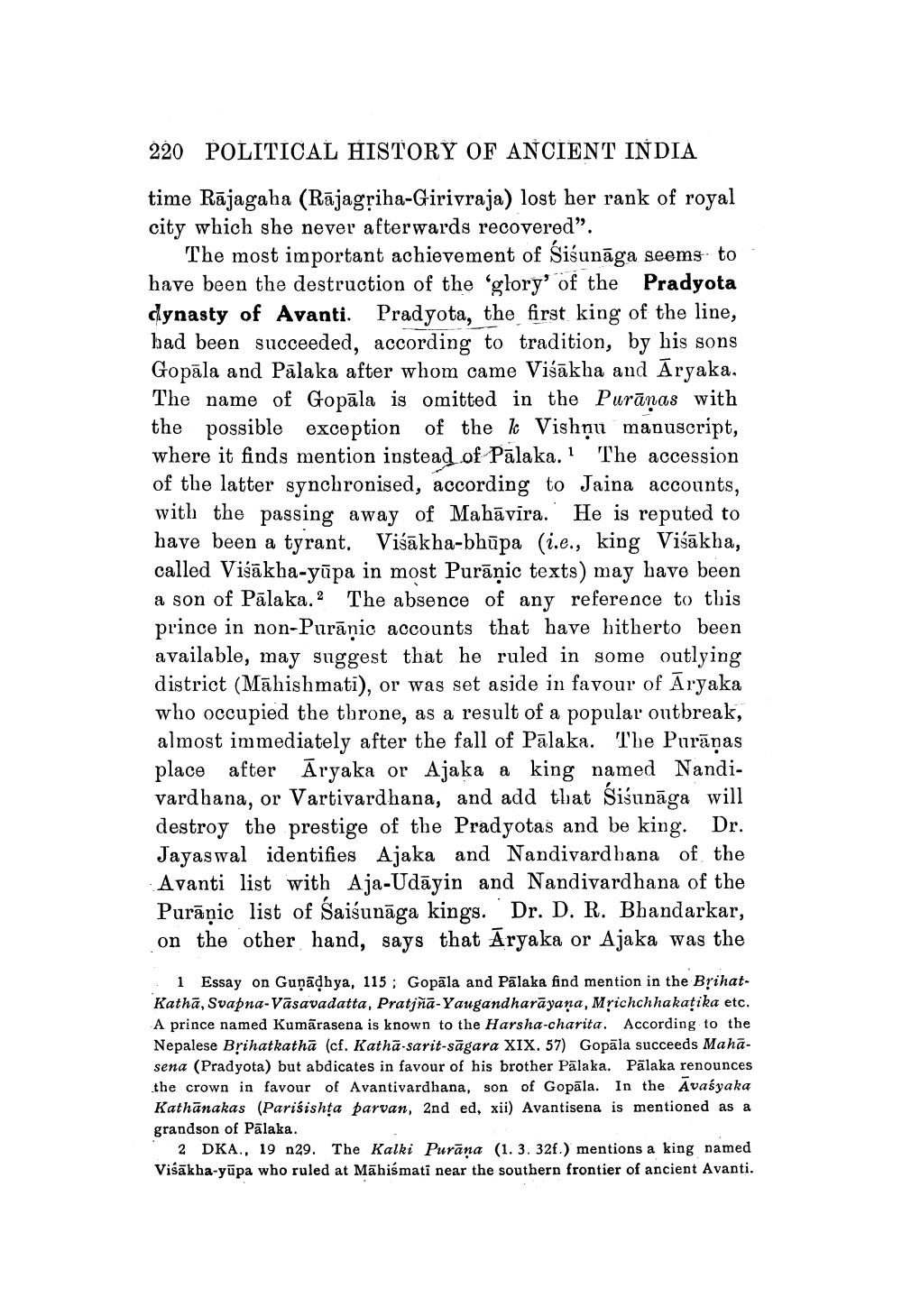________________
220 POLITICAL HISTORY OF ANCIENT INDIA
time Rājagaha (Rājagņiha-Girivraja) lost her rank of royal city which she never afterwards recovered".
The most important achievement of Siśunāga seems to have been the destruction of the 'glory' of the Pradyota dynasty of Avanti. Pradyota, the first king of the line, had been succeeded, according to tradition, by his sons Gopāla and Pālaka after whom came Višākha and Āryaka, The name of Gopāla is omitted in the Purānas with the possible exception of the k Vishņu manuscript, where it finds mention instead of Pālaka. The accession of the latter synchronised, according to Jaina accounts, with the passing away of Mahāvīra.' He is reputed to have been a tyrant. Višākha-bhūpa (i.e., king Višākha, called Višākha-yūpa in most Purānic texts) may have been a son of Pālaka. The absence of any reference to this prince in non-Purāṇic accounts that have hitherto been available, may suggest that he ruled in some outlying district (Māhishmati), or was set aside in favour of Aryaka who occupied the throne, as a result of a popular outbreak, almost immediately after the fall of Pālaka. The Purāņas place after Aryaka or Ajaka a king named Nandivardhana, or Vartivardhana, and add that Siśunāga will destroy the prestige of the Pradyotas and be king. Dr. Jayaswal identifies Ajaka and Nandivardhana of the Avanti list with Aja-Udāyin and Nandivardhana of the Purāṇic list of Saišunāga kings. Dr. D. R. Bhandarkar, on the other hand, says that Āryaka or Ajaka was the
1 Essay on Guņādhya, 115; Gopāla and Pālaka find mention in the BrihatKathā, Svapna-Vasavadatta, Pratjñā-Yaugandharāyana, Mrichchha katika etc. A prince named Kumārasena is known to the Harsha-charita. According to the Nepalese Brihatkathā (cf. Kathā-sarit-sāgara XIX. 57) Gopāla succeeds Mahasena (Pradyota) but abdicates in favour of his brother Palaka. Pālaka renounces the crown in favour of Avantivardhana, son of Gopāla. In the Avaśyaka Kathānakas (Parisishța parvan, 2nd ed, xii) Avantisena is mentioned as a grandson of Pālaka.
2 DKA., 19 n29. The Kalki Purāna (1. 3. 32f.) mentions a king named Visakha-yüpa who ruled at Māhiśmati near the southern frontier of ancient Avanti.




